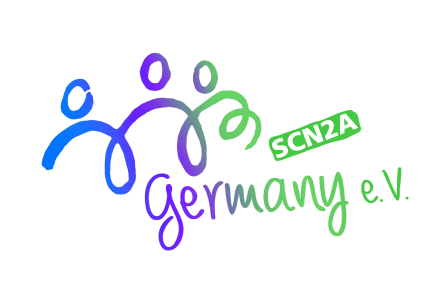SCN2A Germany e.V.
Cycle 3
SCN2A is the name of a gene which can cause a rare brain disease through mutations (e.g. replacement of DNA building blocks). The disease can occur at different times (before or after birth or later in childhood) and have a wide variety of manifestations.
Last updated 04/30/2025
Clinical
Disease Class
Channelopathies
Genetic diseases
Neurological diseases
Body Systems
Digestive
Endocrine
Nervous / Sensory
Organs
Bones
Brain
Intestines
Muscles
Stomach
Known Genetic Link
Yes, one or more genes directly cause the condition
causative_genes
SCN2A
contributory_genes
None specified / unknown
Type of Inheritance
Autosomal dominant
De novo
Newborn Screening
No
Disease Mechanism(s)
Abnormal channel conductance
Abnormal channel regulation
Altered channel kinetics
Ion channel dysfunction
Age of Onset
Early childhood (age 1+-5)
Infancy (age 0-1)
Prebirth
Average Age at Diagnosis
Early childhood (age 1+-5)
Infancy (age 0-1)
Life Expectancy
Adolescence (12-17)
Adulthood (age 18-64)
Early childhood (age 1+-5)
Infancy (age 0-1)
Middle childhood (6-11)
Affected Sex(es)
Female
Male
National Prevalence
51-100
Global Prevalence
1001-10000
National Incidence
11-50
Global Incidence
11-50
Symptoms / Phenotypes
autism
seizures / epilepsy
Biomarkers
Diagnostic
· genetic testing
Monitoring
· EEG, MRI, Clinical assessment
Prognostic
· genetic variant, if it is characterized
Therapeutic
· Seizure frequency
Existing Therapies
Complementary and Alternative treatments
· Cannabinoids
Drugs used off-label
Expanded access (Compassionate Use)
FDA-Approved for Symptom Relief
· anti-seizure medication, medication against movement disorders, sedatives
Organizational & Research
Cell Lines
None
Disease Model
None
Clinical Trial Role
Recruitment and outreach, patients
Results dissemination, publication
Study protocol design, review
Biobank, Institution
None
Center of Excellence, Institution
None
Registry
Yes, we have collaborated on a registry
Data Collected, Registry
Genetic data
Medication usage
Patient contact info
Patient-reported data
Data Entered by, Registry
Patients
Platform, Registry
RARE-X
Natural History Study
Yes, we have collaborated on a natural history study
Data Collected, Natural History Study
Genetic data
Imaging data
Medication usage
Patient-reported outcomes
Retrospective data
Platform, Natural History Study
REDCap
FDA Patient Listening Session
No
FDA Patient-Focused Drug Development (PFDD) Program
No
ICD Codes
We use an ICD-10 code capturing the family of diseases to which our disease belongs
We use an ICD-11 code capturing the family of diseases to which our disease belongs
Diagnostic Guidelines
No
Science Advisory Board Policies
Does not have an SAB
Research Network Policies
Does not have a CRN
Research Roadmap
We don't have a Research Roadmap
International Chapters
None
International Partners
Europe
North America
Oceania
South America
